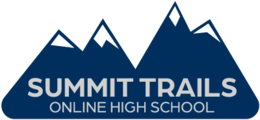Important Information for Students and Parents
- The in-person school supports the student. The student should work with the WeConnect Learning Coordinator for help with course navigation and communication.
- WeConnect courses have due dates for assignments.
- Most courses have quizzes and supervised tests/exams.
- Courses utilized the RVS Google Suite and student email. Many courses require students to use the GSuite to access and complete their assignments. This allows the teacher to track student work and allows the student to utilize accommodations such as Read & Write Google.
- Asynchronous learning differs from in-person learning in that students do not benefit from synchronous teacher facilitation. Teachers can meet with students through Zoom sessions as needed.
- Students who do not participate in their core subjects within the first 2 weeks of attendance may be removed from the course.
- Assignments are downloaded into Moodle and marked by the teacher. Teachers give feedback on the marks in Moodle and, at times, PowerSchool. PowerSchool is utilized for mark calculations.
- Students have the opportunity for reassessment.
What Families Often Miss
- Students who have a 0% in the course after 2 weeks will be contacted to start the course immediately, or the course will be removed from their schedule a week later.
- Students with unique circumstances can communicate with their teacher or Distance Learning Coordinator (RVS Schools) on a completion plan.
- We understand student circumstances may disrupt learning, and we are open to working with students.
- All courses have due dates for assignments. Some courses, especially core courses, have too much content for students to attempt to condense the learning.
- Student plagiarism or excessive AI use results in:
- Item not marked
- Possible discussion with the student
- Repeated offences - student removed from course
- Repeat or redo the assignment or equivalent
-
* All courses have a due date for completion.
* Teachers cannot mark an enormous amount of work in time from students who wait to complete the course near the end of the term. If a student completes a large portion of the course near the end of the course, the teacher is not required to give feedback or provide reassessments for the student.
Plagiarism and AI
Plagiarism refers to copying a task or assignment, partially or entirely, from another person or artificial intelligence and presenting it as one's work. In the case of online learning, it is even more critical to have systems in place due to how students submit assignments and access asynchronous courses. Summit Trails uses various systems to check students' work for plagiarism, including Turnitin and ZeroGPT, along with other research tools, to help identify work that has been directly copied. If this occurs, it may result in the following actions:
- Discuss with the student why the plagiarism occurred or send an email to the student stating that the work has been identified in the system as plagiarized.
- Students may be removed from the course if the offence is repeated.
Other actions taken by the teacher may include:
- The student will receive a Not Handed Designation (0%); the student may be able to resubmit the assignment.
- Status of "incomplete" for the assignment
- An opportunity to redo the assignment or one similar, if time allows
- Academic counselling
- Learning Support Teacher assistance
AI
The Use of AI has numerous applications - here is what teachers are looking for:
- Written work not completed by the student or high percentage by AI
- Statements or facts with a bibliography or evidence
- AI is not a reliable source - there must be proper links to sources
- Processes not taught in class but used in the assignment - student does not understand
- ELA - asking AI to edit work by which it rewrites the sentence using different words and bringing out new meanings.
- Editing software is available and permitted - but students should use this with caution.
Be sure to let your DL Coordinator know or, for Summit Trails full time students, your teacher. They will connect with IT Services to make sure you have access.
- Online Scheduling: Schools Guidance Counsellor or Distance Learning Coordinator
- Teacher emails: located in each Moodle Course
- Students who enjoy self-learning experiences.
- Students who are self-starters and have strong time management skills.
- Students who are capable of computer-based communication.
- Students who are comfortable reaching out to teachers through the learning process (self-advocacy).
- Sometimes, students go directly to assignments or quizzes because they feel they can guess or should have enough prior knowledge to complete the tasks. Students will find this will affect the overall learning of the course and often fail because the material is designed to be connected and to build upon prior knowledge.
- Students are often surprised at the workload of the courses. This is mainly due to the self-learning aspect. The student will spend more energy learning the material independently.
- Grade 12 courses are designed to assist with diploma writing. The online courses will prepare the student for diplomas; however, many students initially experience a drop in their grades from grade 11. This is not always the case; the 30 level courses are rigorous, and students who do not stay on top of the due dates and reassessments can become overwhelmed, which results in not being able to develop deep learning.
- Core courses cannot be completed in a compressed time. Sometimes students will miss many tasks thinking they can compress their time and complete the course. Rarely do students have success at this. The design of all the courses is based on scaffolding pedagogy. The first concept leads to the second concept etc. If students miss concepts, they miss deep learning, which will reveal itself in other assessments, impacting their understanding and assessment results.
- Each task evaluates an Alberta Education Program of Studies strand or outcome. Teachers are not able to remove an outcome evaluation. If the student chooses not to complete a task, it will go against the student's overall grade. Online course grades represent the total learning of the entire course, not just learning of what was completed by the student.
- Attend the WeConnect Block at their school, focusing on their WeConnect courses.
- Complete assignments by the given due date.
- Have a working computer (or be provided one by the in-person school)
- Connect with their teacher via email as needed.
- Connect with the Distance Learning Coordinator in the room as needed.
- Interact with students online in a respectable manner as outlined in the RVS Technology Responsibility Agreement.
- Complete their tasks with integrity.
- Depending on the course, students can try tests and assignments through an automated process (the question allows for two tries). If students would like a reassessment, they can fill out the Reassessment Request Form.
- The course is the "textbook." However, students are not required to have a textbook from the school.
- We realize there are many ways students can locate knowledge on the internet. Therefore, we design courses to increase students' understanding of the need for learning for life and the importance of growing their critical thinking skills. With that in mind, teachers will use various programs to prove the legitimacy of student work. The teacher and student will discuss the tasks if work is called into question.
- Exams are usually completed with supervision (depending on the course).

